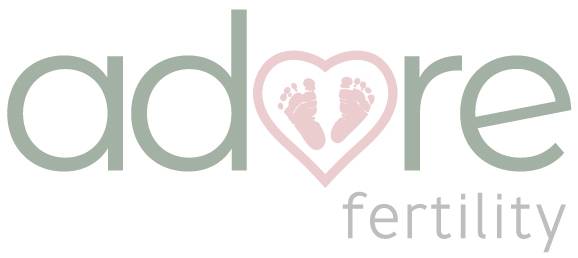
Types of Fertility Treatment Options
Introduction to Fertility Treatment Options
In the quest to start or expand a family, many couples encounter obstacles that can make natural conception challenging. Fertility treatments have emerged as a beacon of hope for those navigating the complex journey of infertility. These treatments encompass a broad spectrum of medical strategies designed to increase the chances of conception and successful pregnancy.
Understanding Fertility Treatments
Infertility affects a significant number of couples worldwide, with estimates suggesting that about 15% of couples are unable to conceive after a year of trying. The causes of infertility are diverse, affecting both men and women. In females, issues might include ovulatory disorders, fallopian tube damage, or endometriosis. For males, infertility can stem from low sperm count, poor sperm mobility, or abnormalities in sperm shape. Additionally, lifestyle factors, environmental exposures, and age can play critical roles in a couple’s ability to conceive.
Fertility treatments range from medication that stimulates ovulation to advanced assisted reproductive technologies (ART) like in vitro fertilization (IVF) and intracytoplasmic sperm injection (ICSI). The choice of treatment depends on the underlying cause of infertility, the ages of the individuals involved, and how long the couple has been trying to conceive.
Given the emotional and financial investment required for fertility treatments, consulting with a healthcare provider is essential. A fertility specialist can conduct comprehensive evaluations to identify the root causes of infertility and recommend the most appropriate treatment plan. This professional guidance is invaluable, ensuring couples are well-informed about their options and the associated success rates, risks, and costs. By taking an informed and proactive approach, couples can navigate the path to parenthood with confidence and support.
Types of Fertility Treatments
Navigating the path to parenthood can be complex for many couples facing infertility. Fortunately, advancements in medical science have introduced a variety of fertility treatments, each with its own set of procedures, ideal candidates, success rates, and costs. Here, we explore some of the most common fertility treatments available today.
Intrauterine Insemination (IUI)
Intrauterine insemination (IUI) is a fertility treatment that involves placing sperm directly into a woman’s uterus to facilitate fertilization. The procedure aims to increase the number of sperm that reach the fallopian tubes, thereby enhancing the chance of conception. IUI is often recommended for couples with unexplained infertility, mild male factor infertility, or women with cervical mucus problems. The success rates of IUI vary, with a general range of 10-20% per cycle, depending on factors like age and underlying fertility issues. IUI costs relatively lower than other ART procedures, typically ranging from $300 to $1,000 per cycle.
In Vitro Fertilization (IVF)
In Vitro Fertilization (IVF) is one of the most effective fertility treatments available. It involves retrieving eggs from a woman’s ovaries and fertilizing them with sperm in a lab. The fertilized egg, or embryo, is transferred to the woman’s uterus. IVF is suitable for a wide range of infertility issues, including blocked fallopian tubes, severe male factor infertility, and cases where other treatments have failed. Success rates for IVF vary significantly based on factors like age, with younger women generally experiencing higher success rates. The cost of IVF can be substantial, often ranging between $12,000 and $17,000 per cycle, not including medication costs.
Donor Eggs
The use of donor eggs is an option for individuals or couples who cannot use their eggs for conception. This may be due to premature ovarian failure, diminished ovarian reserve, or genetic concerns. The process involves selecting an egg donor, retrieving eggs from the donor, fertilizing them with sperm, and transferring the resulting embryos into the recipient’s uterus. Legal agreements are crucial in defining the rights and responsibilities of all parties involved. Success rates with donor eggs are generally high, often exceeding 50% per transfer. The costs, however, are significant, with cycles typically costing between $25,000 and $30,000, including donor compensation and medical expenses.
Gestational Carrier (Surrogacy)
A gestational carrier (surrogacy) involves a surrogate mother carrying and delivering a baby for another person or couple. The embryo implanted in the surrogate’s uterus is created via IVF, using the eggs and sperm of the intended parents or donors. This option is particularly relevant for women unable to carry a pregnancy or for same-sex male couples. Legal considerations are paramount in surrogacy arrangements to protect the rights and responsibilities of the surrogate and the intended parents. Success rates for surrogacy are comparable to those of IVF, depending on various factors like the age of the egg donor. The costs associated with surrogacy can be high, often exceeding $100,000, covering medical, legal, and surrogate compensation expenses.
Egg Freezing
Egg freezing, or oocyte cryopreservation, allows women to preserve their fertility for future use. This procedure is considered by women not ready to conceive but who wish to keep the option open for later, those facing medical treatments that could affect fertility, or those at risk of premature ovarian failure. The process involves hormone injections to stimulate the ovaries, followed by egg retrieval and freezing. Success rates for future conception using frozen eggs vary, with younger women generally seeing better outcomes. The cost of egg freezing can range from $6,000 to $15,000 per cycle, plus annual storage fees, making it a significant investment in future fertility.
Each fertility treatment option offers hope to those dreaming of parenthood but facing challenges along the way. By understanding the procedures, ideal candidates, success rates, and costs involved, couples can make informed decisions about their path to building a family.
